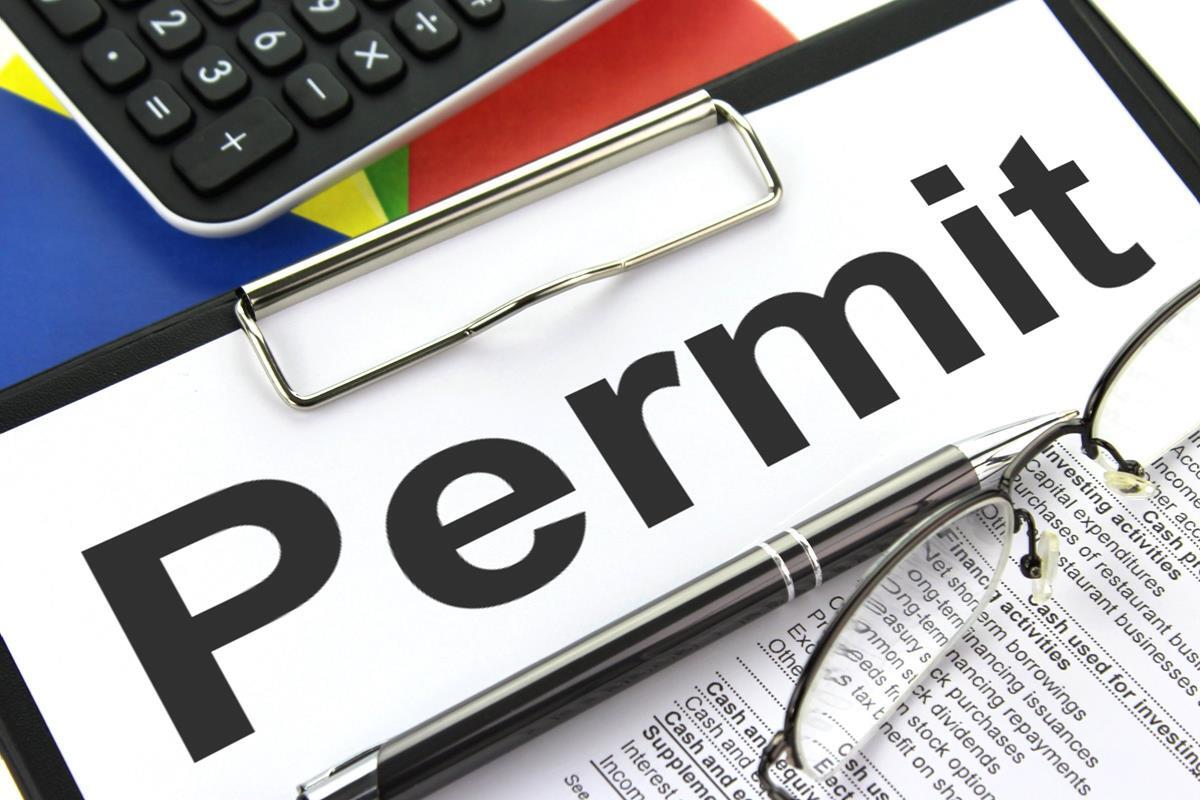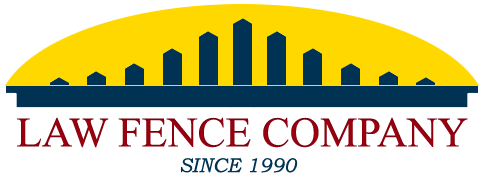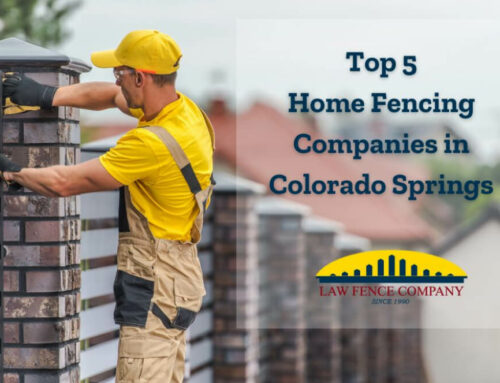
Building a fence is often a top consideration for enhancing the aesthetic appeal and security of your home in Colorado Springs. However, many homeowners don’t realize the complexity of legal requirements accompanying this seemingly straightforward project.
Understanding local fence-building laws is not just about compliance; it’s about being a responsible and informed member of your community. This guide aims to demystify the legal landscape surrounding fence construction in Colorado Springs, providing you with the essential knowledge to ensure your fencing project aligns with local regulations and community standards.
Key Takeaways
- Engaging in open and respectful dialogue with neighbors about your fencing plans, especially when considering barbed wire fence options, can prevent misunderstandings and disputes. It’s important for each property owner to discuss how the fence might affect their property and to consider their views and preferences.
- For fences, including partition fences, exceeding certain heights or built in specific areas, obtaining the necessary permits is crucial. This process often involves submitting a site plan and getting approvals from relevant local authorities, in accordance with Colorado fence laws.
- When a fence is on a property line, shared responsibility for maintenance and costs should be discussed and agreed upon with neighbors. Knowing and respecting property boundaries is crucial.
- Building a fence without adhering to local laws and regulations, such as those detailed in Colorado fence laws, can result in legal consequences. This might include modifying or removing the fence, incurring fines, or facing disputes with neighbors or the community.
Why Are Fence Laws Important in Colorado Springs?

Fence laws in Colorado Springs play a crucial role in maintaining neighborhoods’ aesthetic harmony and structural integrity. These laws ensure that fences serve their functional purpose, such as ensuring privacy or marking boundaries, and complement the overall look and feel of the community. By adhering to these regulations, homeowners contribute positively to the neighborhood’s character and curb appeal.
Resolving Disputes and Encroachments
Disputes over property boundaries and fence placements are common issues in residential areas. Colorado Springs’ fence laws provide a framework for resolving such conflicts, safeguarding the rights of property owners while promoting amicable solutions. By clearly defining legal stipulations for fence height, materials, and placement, these laws help preempt conflicts, saving homeowners from potential legal hassles and strained neighborly relations.
What Do I Need to Know Before Planning My Fence?
Before embarking on your fence project, it’s imperative to know the exact boundaries of your property. Misjudging property lines is a common pitfall leading to legal disputes with neighbors. Obtaining a property survey is a reliable way to determine your boundaries.
Typically available from your local county or a licensed surveyor, this document will provide accurate property measurements, ensuring your fence is built within legal limits. This step is crucial especially when establishing a lawful fence, which must adhere to specific local regulations to be considered valid.
Choosing the Right Type of Fence for Your Property
Selecting the appropriate fence type is a matter of personal preference and legal consideration. In Colorado Springs, different fences (like privacy, chain-link, or decorative fences) might be subject to specific regulations. Local zoning laws can regulate fence height, material, and design. For instance, a tall privacy fence might be perfect for your needs, but checking if its height aligns with local zoning restrictions is essential. Additionally, it’s important to agree on an allocated fence line with your neighbors to avoid future conflicts.
How Do I Navigate Local Zoning Laws and Regulations?
In Colorado Springs, like any city, the use of land, including the construction of fences, is governed by zoning laws. These laws stipulate how property owners can utilize their land, encompassing various standards like building height, placement, and the materials used. Understanding these zoning laws is crucial as they directly influence what type of fence you can build, especially when considering a partition fence which may affect multiple property owners.

Image Source: Freepik
How Zoning Laws Affect Fence Height, Materials, and Placement
In Colorado Springs, fences no above six feet can be constructed anywhere on a property without a building or fence permit. This includes construction on the property line, except within established preservation areas. However, any fence over six feet is considered a structure and requires a site plan, engineered drawing, and approval from Development Services and the Colorado department of the Pikes Peak Regional Building Department.
Special Considerations for Historical or Conservation Areas
Additional regulations may exist if your property is in a historical or conservation area. These areas often have stricter guidelines to maintain their historical or environmental integrity. Checking with local authorities or neighborhood associations for specific rules in these zones is advisable.
Are Permits Required for Fence Building in Colorado Springs?

Image Source: Freepix
A permit is required for fences over six feet in height. This is because taller fences are considered structures and must comply with stricter safety and design standards. Additionally, if your fence is along a road or intersection, you must adhere to Sight Visibility Regulations, which may affect the height and distance of your fence.
The Permit Application Process
To apply for a fence-building permit in Colorado Springs, follow these steps:
- Prepare a Site Plan: Begin by creating a detailed site plan, which may need to include an engineered drawing, depending on your project’s specifics.
- Seek Approval from Authorities: Submit your site plan for approval to Development Services and the Pikes Peak Regional Building Department.
- Consult Professionals: Consult a professional fencing company or the local building department. They can assist with the application process and ensure your fence project complies with all local regulations.
Remember, adhering to zoning and permit rules is crucial for maintaining the safety, aesthetics, and integrity of neighborhoods in Colorado Springs. Always engage with local authorities or professionals before commencing your fence project to ensure it meets all necessary regulations and standards.
How Do I Respectfully Deal with Neighbors When Building a Fence?
Discussing your plans with neighbors is crucial to maintaining good relationships and avoiding disputes when planning to build a fence. Here are some tips:
- Discuss the Positives: Emphasize the benefits of the fence, like added property value and enhanced aesthetics. This can help present the fence in a positive light, especially important for livestock owners who may benefit significantly. A well-designed fence can even turn ordinary horses into a beautiful showcase, enhancing the overall look of your property.
- Consider Neighbors’ Needs and Preferences: Be mindful of how your fence might impact your neighbors, such as obstructing views or sunlight. Try to find solutions that minimize negative impacts, ensuring compliance with Colorado’s fence laws which may specify guidelines on the actual property line.
- Share Your Plans: No one appreciates surprises, especially regarding changes that might affect their property. Share your fencing plans with your neighbors and keep them informed. Discussing the actual boundary line is crucial to ensure that everyone’s rights are respected.
- Resolve Conflicts Amicably: If disagreements arise, listen to your neighbors’ concerns and seek a compromise. It’s essential to address any issues with understanding and respect.
Shared Fences and Boundary Issues

For fences on property lines, here are some legal and neighborly considerations:
- Verify Property Lines: Ensure you know the exact property lines. If there’s any doubt, a survey might be necessary.
- Discuss Shared Responsibility: If the fence will be shared, discuss maintenance responsibilities and costs with your neighbor.
- Seek Mutual Agreement: If you’re sharing the fence, it’s ideal to agree on the type of fence and share the costs.
What Are the Legal Implications of Non-Compliance?

Building a fence without adhering to local laws can lead to legal issues:
- Permit Requirements: Failing to obtain the necessary permits can result in having to modify or remove the fence, along with potential fines.
- Neighbor Disputes: Non-compliance with local regulations or property line disputes can lead to legal action from neighbors or the community.
Additional Considerations and Best Practices
- Safety and Accessibility Standards: Ensure your fence meets local safety and accessibility standards to avoid legal complications and ensure the well-being of all community members. This is particularly important for existing fence upgrades or repairs.
- Environmental Impact and Sustainability: Consider using environmentally friendly materials and practices to reduce the ecological footprint of your fencing project. Sustainable practices benefit the environment and can appeal to environmentally conscious neighbors and community members.
| Consideration | Details |
| Standard Height Limit | Fences up to six feet tall don’t require a permit, except in designated preservation areas. This is often sufficient for most livestock owners who need to contain animals without obstructing views. |
| Requirements for Taller Fences | Fences over six feet are classified as structures and require a site plan, engineered drawings, and approval from Development Services and the Pikes Peak Regional Building Department. |
| Impact of Location | Fences along roads or intersections must comply with Sight Visibility Regulations. The height and distance of the fence can be affected based on the driveway’s relation to the road and the road’s speed limit. |
| HOA Considerations | Homeowners must consult their HOA regulations, as they may have specific rules about fence height, style, or material, potentially more restrictive than city regulations. |
| Permit Process for Homeowners | Homeowners can obtain permits for work on their primary residence. They are expected to know the pertinent codes and are responsible for the work passing all required inspections. The contractor hired must be licensed and registered with the Pikes Peak Regional Building Department. |
Conclusion
Building a fence in your neighborhood is more than just a construction project; it’s an exercise in community engagement and legal compliance. Respectful communication with neighbors, adherence to local regulations, and consideration for environmental impact and safety standards are crucial for a successful outcome.
By approaching fence construction with mindfulness and cooperation, you enhance your property and contribute to the harmony and beauty of your community. Remember, a well-planned fence can build more than just boundaries; it can build lasting goodwill among neighbors.
As you consider the complexities and importance of building a fence in your community, remember that Law Fence is here to assist you every step of the way. From navigating local regulations and obtaining permits to selecting environmentally friendly materials and engaging with neighbors, our expertise ensures a smooth and compliant process. Contact Law Fence today for a hassle-free fencing solution that respects legal requirements and community harmony.




